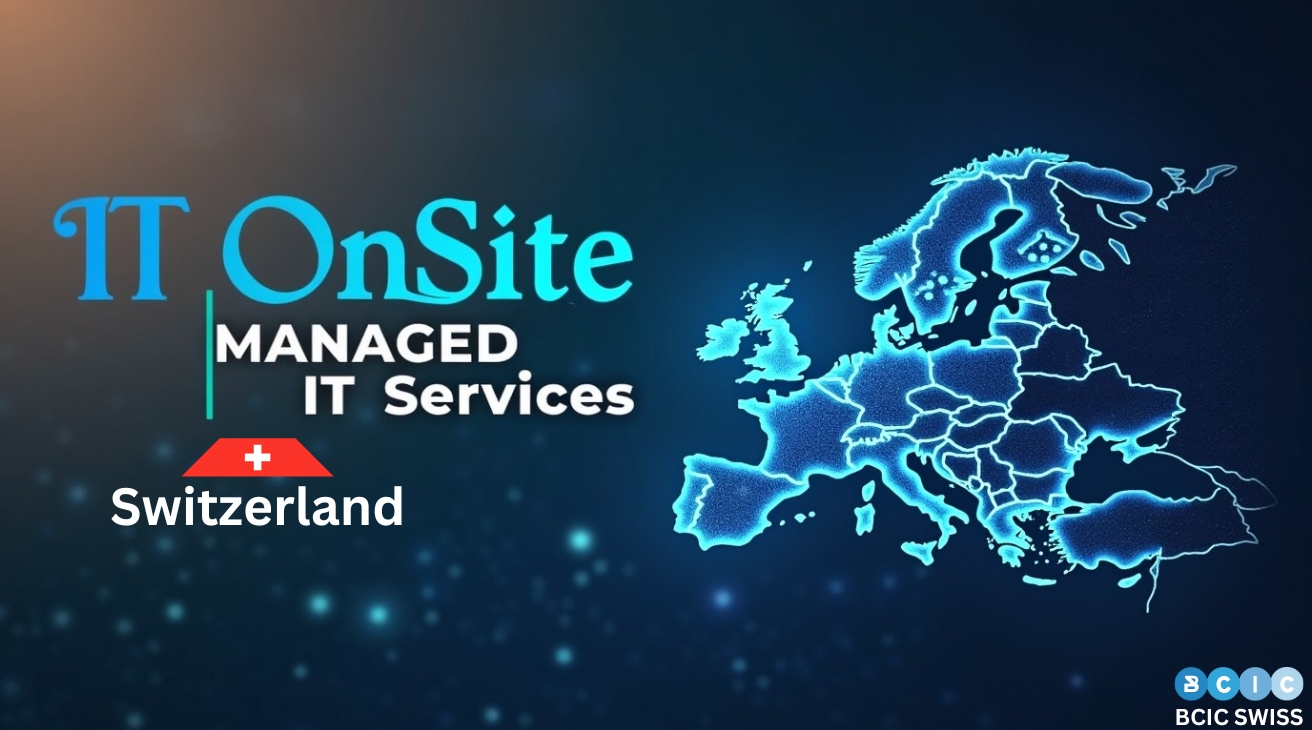Navigating the Future of Marketing in Switzerland 2025
Digital Marketing Trends in Switzerland 2025
In the dynamic landscape of digital marketing, staying ahead of the curve is essential for success. This is particularly true in Switzerland, where a blend of cultural diversity and technological adoption shapes unique marketing opportunities. As we look towards 2024, understanding the latest digital marketing trends is crucial for Swiss businesses, marketing professionals, and tech enthusiasts alike. In this comprehensive guide, we’ll explore the state of digital marketing in Switzerland, emerging trends, and how to adapt strategies for optimal results.
Understanding the Current Digital Marketing Landscape in Switzerland
Switzerland’s digital marketing arena is as diverse as its four national languages. This diversity influences the strategies and platforms that dominate the market. Currently, social media marketing, content marketing, and search engine optimization (SEO) hold sway. Platforms like Instagram, LinkedIn, and YouTube are essential for brand visibility and engagement. However, the Swiss market's unique characteristics demand a localized approach to maximize impact.
The Swiss audience values authenticity and precision, two qualities reflected in their preferred digital content. Swiss consumers respond well to personalized, high-quality content that speaks directly to their needs and preferences. Businesses have capitalized on this by integrating data analytics into their marketing efforts, enabling them to tailor their campaigns effectively.
Furthermore, mobile marketing has seen a significant rise in Switzerland, with an increasing number of consumers accessing information via smartphones. Optimizing websites and content for mobile devices is no longer optional but a necessity for reaching the Swiss audience efficiently.
Emerging Digital Marketing Trends in 2024

AI and Machine Learning in Marketing
Artificial intelligence (AI) and machine learning are set to revolutionize digital marketing in 2024. These technologies enable precise targeting and personalization, enhancing user experiences. Predictive analytics, chatbots, and AI-driven content creation are becoming standard tools for marketers aiming to optimize their campaigns and engage customers more effectively.
Interactive Content and Gamification
Interactive content, including quizzes, polls, and gamified experiences, is gaining traction. These formats boost engagement rates and foster deeper connections with the audience. Swiss businesses can leverage these tools to create memorable brand interactions and drive conversions.
Augmented Reality (AR) and Virtual Reality (VR) Applications
AR and VR technologies are no longer confined to the gaming industry. In 2024, they’re expected to make significant inroads into marketing. From virtual product trials to immersive brand experiences, Swiss companies can harness AR and VR to captivate audiences and offer innovative customer journeys.
Privacy-First Marketing Strategies
With increasing concerns about data privacy, Swiss businesses must prioritize transparent and ethical data practices. Implementing privacy-first marketing strategies builds trust and aligns with consumer expectations. This involves obtaining explicit consent and ensuring data security, ultimately fostering brand loyalty.

Impact on Different Sectors
Finance
In the financial sector, digital marketing trends are transforming customer interactions. AI-driven customer service, personalized financial advice, and secure online transactions are reshaping the industry. Swiss financial institutions can leverage these trends to enhance customer trust and satisfaction.
Healthcare
Digital marketing in healthcare focuses on patient engagement and education. Telemedicine, health apps, and online consultations are gaining traction. Swiss healthcare providers can utilize these tools to improve accessibility and patient outcomes, while also adhering to strict regulatory standards.
Retail
The retail sector is experiencing a shift towards omnichannel marketing, where seamless integration between online and offline experiences is key. Augmented reality try-ons, personalized recommendations, and efficient logistics are essential for Swiss retailers aiming to provide superior customer service.
Education
In education, digital marketing is enhancing student recruitment and engagement. Online courses, virtual open days, and interactive learning modules are becoming commonplace. Swiss educational institutions can use these trends to attract international students and expand their reach.
Adjusting Your Marketing Strategy
Adapting to digital marketing trends is crucial for staying competitive. Swiss businesses should begin by assessing their current strategies and identifying areas for improvement. Incorporating AI tools, enhancing mobile experiences, and prioritizing data privacy are vital steps in this process.
To effectively implement new trends, businesses need to invest in training and development. Encouraging a culture of continuous learning ensures that marketing teams remain up-to-date with the latest innovations. Collaboration with tech-savvy experts can also facilitate smoother transitions and maximize the benefits of emerging technologies.
Another key aspect is data-driven decision-making. Utilizing analytics to monitor campaign performance, customer behavior, and market trends enables businesses to make informed choices. This proactive approach not only improves efficiency but also enhances customer satisfaction and brand loyalty.
Real-World Case Studies of Swiss Innovation
Swiss Watchmaking Industry
The Swiss watch industry, renowned for its precision and craftsmanship, has embraced digital marketing trends to remain relevant in a tech-driven era. By incorporating AI analytics and virtual showrooms, luxury watch brands have successfully engaged younger, tech-savvy consumers.
Swiss Tourism Boards
Switzerland’s tourism boards have leveraged immersive digital experiences to attract international travelers. Interactive virtual tours and personalized travel recommendations showcase the country’s diverse attractions and cultural heritage, boosting tourism in a competitive global market.
Swiss Retailers and Sustainability
Swiss retailers focusing on sustainability have effectively used digital marketing to communicate their eco-friendly initiatives. Through engaging content and transparent supply chain information, these brands have built trust with environmentally-conscious consumers.
Essential Tools and Resources for Swiss Marketers
Staying ahead in the digital marketing landscape requires access to the right tools and resources. Swiss marketers can benefit from using AI-powered software for data analysis, social media management platforms for efficient content scheduling, and SEO tools to optimize online visibility.
Workshops, webinars, and industry conferences offer valuable opportunities for networking and knowledge sharing. Engaging with local marketing communities can provide insights into regional nuances and foster collaboration among professionals.
Additionally, subscribing to reputable marketing publications and blogs keeps marketers informed about the latest trends and best practices. Continuous learning is essential for success in the fast-paced world of digital marketing.
The Importance of Localized Content
Localized content is a powerful tool for connecting with Swiss audiences. Tailoring marketing messages to reflect Swiss cultural values, traditions, and preferences enhances relatability and engagement. Utilizing local idioms and references can create an authentic brand voice that resonates with the target audience.
Swiss businesses should also consider creating multilingual content to cater to the country’s diverse linguistic landscape. Providing content in German, French, Italian, and English ensures broader reach and inclusivity, capturing the attention of various demographic segments.
Incorporating regional keywords and phrases into digital marketing strategies can further boost search engine rankings and attract local traffic. Understanding local search behavior is key to optimizing content for maximum visibility and impact.
Language Variations and Regional Keywords
Switzerland’s linguistic diversity presents unique opportunities for digital marketers. Incorporating language variations and regional keywords into content strategies can significantly enhance SEO performance. By adopting a multilingual approach, businesses can tap into different language communities and expand their reach.
Conducting keyword research in German, French, and Italian allows marketers to identify relevant search terms and trends specific to each language group. This targeted approach ensures that content aligns with regional preferences and captures the attention of diverse audiences.
Furthermore, optimizing meta tags, titles, and descriptions in multiple languages enhances discoverability in search engines. By catering to linguistic nuances, businesses can improve user experience and drive organic traffic to their websites.
Industry-Specific Phrases and Marketing Integration
For Swiss businesses operating in specialized sectors, leveraging industry-specific phrases is crucial for effective communication. Integrating keywords related to cybersecurity, IT infrastructure, and other relevant topics enhances content relevance and authority.
Understanding the unique challenges and opportunities within specific industries allows marketers to tailor their messaging accordingly. By addressing industry-specific pain points and offering tailored solutions, businesses can position themselves as trusted experts and gain a competitive edge.
Cross-functional collaboration between marketing and IT teams can further enhance digital marketing strategies. Integrating marketing initiatives with technology infrastructure ensures seamless execution and maximizes the impact of campaigns.
Conclusion
In the rapidly evolving digital landscape of Switzerland, staying informed about emerging marketing trends is essential for success. By understanding the current state of digital marketing and adapting strategies to incorporate new technologies, Swiss businesses can maintain their competitive edge and drive growth.
From AI-driven personalization to interactive content and privacy-first marketing, the future of Swiss marketing holds exciting possibilities. By leveraging localized content, multilingual strategies, and industry-specific insights, businesses can engage diverse audiences and build lasting relationships.
As we look towards 2024 and beyond, embracing innovation and continuous learning will be key to thriving in Switzerland’s dynamic digital marketing ecosystem. With the right tools, strategies, and mindset, Swiss businesses can unlock new opportunities and achieve digital marketing success.


























